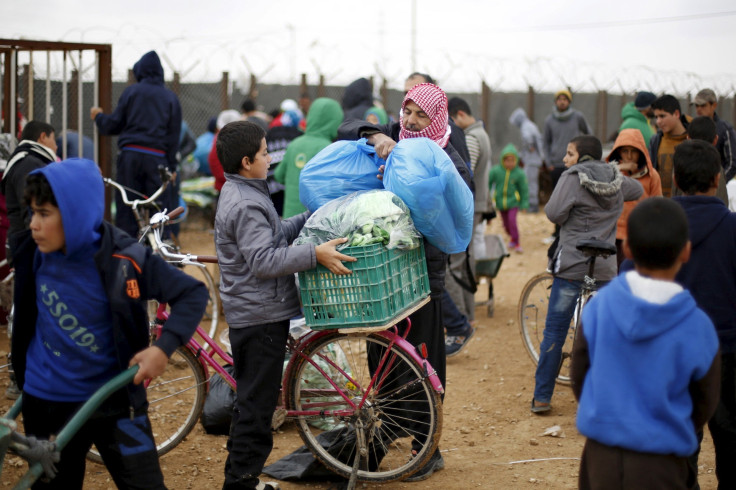How To Solve The Syrian Refugee Crisis? Create Jobs In Middle East, Germany Says

Germany has a new plan to help Syrian refugees living in Middle Eastern countries gain some stability. It wants to create 500,000 short-term jobs that would allow refugees to survive in the overburdened countries taking them in, the German minister for economic cooperation and development said Tuesday during a visit to Jordan, the Associated Press reported.
The country will propose the idea at the annual Syrian aid conference in London next week. “It's called cash for work, to employ Syrian refugees, but also unemployed Jordanians ... in building schools, infrastructure,” Germany’s Minister for Economic Cooperation and Development Gerd Mueller told the Associated Press.
The program would begin in mid-2016, and Germany would initially give 200 million euros or $217 million, with other countries being asked to donate as well. Refugees who participate would earn about 300 euros, or $325, per month.
“This program ... can create 500,000 jobs in the whole region with 2 billion” euros, Mueller said Tuesday.
The past few years since the start of the Syrian civil war in 2011 have seen almost 4.3 million Syrians flee their home country. While many have migrated to Europe, most remain in the Middle East, with the largest numbers in Jordan, Lebanon and Turkey. Lebanon has about 1.2 million registered refugees and 630,000 have gone to Jordan, the Associated Press reported. Most of these people live outside formal refugee camps.
In the past year, hundreds of thousands of Syrian refugees have left the Middle East for Europe as food cuts and a lack of cash to support them made life in their new host countries even more difficult. Germany’s plan aims to reduce the cash burden on Middle East countries and make life for refugees tolerable so they can stay where they are.
Labor rights for Syrian refugees is expected to be a key discussion point at the conference in London, according to the Associated Press. Jordan and Lebanon, which already have high unemployment rates among their own citizens, prevent most refugees from working illegally. While many refugees do find unofficial jobs, these are typically low-paying.
Jordanian officials plan to present a new plan in London, which Germany is eager to see. The plan will include creating special economic zones to encourage foreign investment and adding new jobs for Syrian refugees.
“Jordan needs investments, jobs, an outlook for the future of the country, for its own population and for the Syrian refugees,” Mueller said.
© Copyright IBTimes 2025. All rights reserved.





















